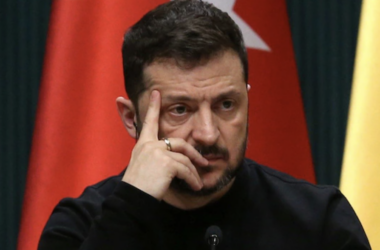Lithuania’s defense minister Dovile Sakaliene is sounding the alarm: unless the European Union ditches its borrowing restrictions on military spending, it risks sleepwalking into a direct conflict with Russia.
“Defense isn’t just another policy box to check—it’s a matter of survival,” Sakaliene declared on April 15. “We’re not talking about theory here. If we can’t supply ammunition to our troops, everything else becomes irrelevant.”
With tensions running high across Europe’s eastern flank, Sakaliene called for immediate financial action. She pushed for direct EU grants—rather than loans—to bolster military capabilities, arguing that current funding mechanisms simply aren’t fast or flexible enough to meet the growing threat.
Lithuania, which shares borders with both Russia and its close ally Belarus, plans to hike its defense spending to a staggering 5.5% of GDP next year. That’s a sharp increase from the 3.9% allocated for 2025—a move reflecting just how seriously the Baltic nation takes the possibility of escalation.
At a meeting on April 12, EU finance ministers floated the idea of a joint European defense fund that wouldn’t count against national debt. The concept would let highly-indebted member states invest in military readiness without blowing past EU fiscal rules—a key sticking point in ramping up collective defense.
The proposal comes amid growing concern that the U.S. might no longer be a reliable guarantor of European security. Sakaliene even acknowledged former President Donald Trump’s criticisms about NATO allies not pulling their weight. “It’s an uncomfortable truth—but a justified one,” she said. “Europe dragged its feet for too long.”
Despite U.S. skepticism, frontline NATO states like Lithuania, Latvia, Estonia, and Poland maintain tight military ties with Washington and have kept their defense budgets high. According to Sakaliene, those investments have paid off: “We know the U.S. stands with us in a crisis because we’ve done our part.”
Meanwhile, the EU’s broader ReArm Europe initiative is eyeing €800 billion in defense investment over the next four years. Sakaliene, however, insists that the clock is ticking—and that half-measures won’t cut it.
“We still have a window to act,” she warned. “But if we wait, that window might slam shut—for good.”




